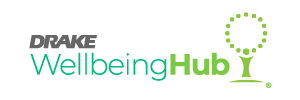We pretend and lie on a daily basis. Yes, you’ve read it correctly – we all lie every single day! If right now you are feeling morally outraged (like one very pious lady who gave me the look of total and utter disapproval mixed with traces of disgust when I started my lecture with the same words at one religious organisation some time ago), please allow me to finish my thought.
Let us say that we just found out that our partner had cheated on us and has decided to leave us. Let us also imagine that that very morning, our boss had suddenly called us into his office and informed us that we would be let go due to our “poor performance at work in the last two months”. And let us also say that just the day before, the doctors have finally come up with the diagnosis of our latest chronic fatigue and constant gastrointestinal issues that led to our subpar performance at work – Lupus and Crohn’s disease.
And let us imagine that with all of this on our plate, we are at Coles or Woolworths buying some food items that we can barely afford now and are thinking how on earth are we going to afford our rent right now. A lovely cashier scans the first item and casually asks, “Hello, how are you today?” What do we say? Do we respond with, “Oh, please, if you only knew… My whole life is falling apart. My wife of 15 years has decided to run away with Jarred. Jarred! Of all people!!! And my boss just fired me, so I have no idea how I am going to find another job because I am sick. I am so sooo sick…” Or we answer with a simple, “Fine, thank you. And you?”
The interesting thing about that is that we act in the exact same way in almost every aspect of our lives. We do it with our neighbours. We have neither time nor desire to deal with the issues of that, what’s-her-name, old lady from the sixth floor. It is the same thing with our work. We go to a church, mosque, synagogue or even attend a gala dinner, and do the same thing. We also come to our work and always try to put on our bravest face because our co-workers are usually immersed in their own things and do not have time for anything more than a superficial chit-chat, while our old-school boss bears some resemblance to Gunnery Sergeant Hartman from Full Metal Jacket and making him upset with our issues is never an option.
In the world that is becoming more and more selfish, estranged and alienated, it is very easy to miss subtle changes of mood in people around us. We fail to notice, and quite often (let us be just honest about it) we choose not to notice what is happening with our friends, co-workers, neighbours or even close family members because we just don’t have time for that. But if we don’t show care – then, who will? Do we always have to wait for others to make the first step? Or perhaps we can choose to be the ones who will initiate that positive change by embracing those basic human values of caring and being there for people around us no matter what?
When Gavin Larkin’s father suddenly ended his own life in 1995, it prompted Gavin to question his own battles with depression and extremely dark thoughts. He decided to honour his father’s memory by starting a national conversation on mental health and suicide, R U OK?, that was officially launched on 29th of November 2009 and consequently moved to every second Thursday of September. And even though Gavin did not live to see the extent of what his noble idea would eventually become (he died less than two years later from cancer at the age of only 42), his legacy lives on and more and more people are encouraged to stop in their track, look around, and ask a genuine “are you ok” question.
The purpose of the R U OK? campaign is not to invade someone’s privacy with unnecessary and unwanted attention. The purpose is not to try to diagnose people around us and offer mental health assistance that we may not be qualified to provide. Its purpose is also not to use it just once a year, while doing absolutely nothing on other 364 days. I firmly believe that kind of practice would go against the spirit of Gavin Larkin’s original idea about this. No. The purpose of this praiseworthy campaign is to make us better attuned to the needs of those around us. We do not need to know basic principles of cognitive behaviour therapy to care for others. Neither we need to have a certificate in mental health first aid or training in risk assessment to be able to notice those who are struggling. That deep sigh of our colleague at a desk next to ours. Or a soft cry from a person at a local café place. Or even seeing a usually happy and focused person, appearing somewhat lost. Just a simple, “Are you ok? Is there anything I can do?” from our side, can make a difference. And if we are ready to stay longer after our work finishes and spend additional 15 minutes, 30 minutes, or even a bit longer with our colleague who is obviously struggling instead of rushing out like we are racing Usain Bolt, it would mean a world to that person. Quite honestly, I know it would mean a world to me, too. And it did!
- Edvard Miler
👉 Reach out today. It’s confidential, non-judgmental, and designed to support you.

 CA-EN
CA-EN
 UK
UK
 AU
AU
 US
US
 NZ
NZ
 PH
PH
 ZA
ZA
 SG
SG
 HK
HK








